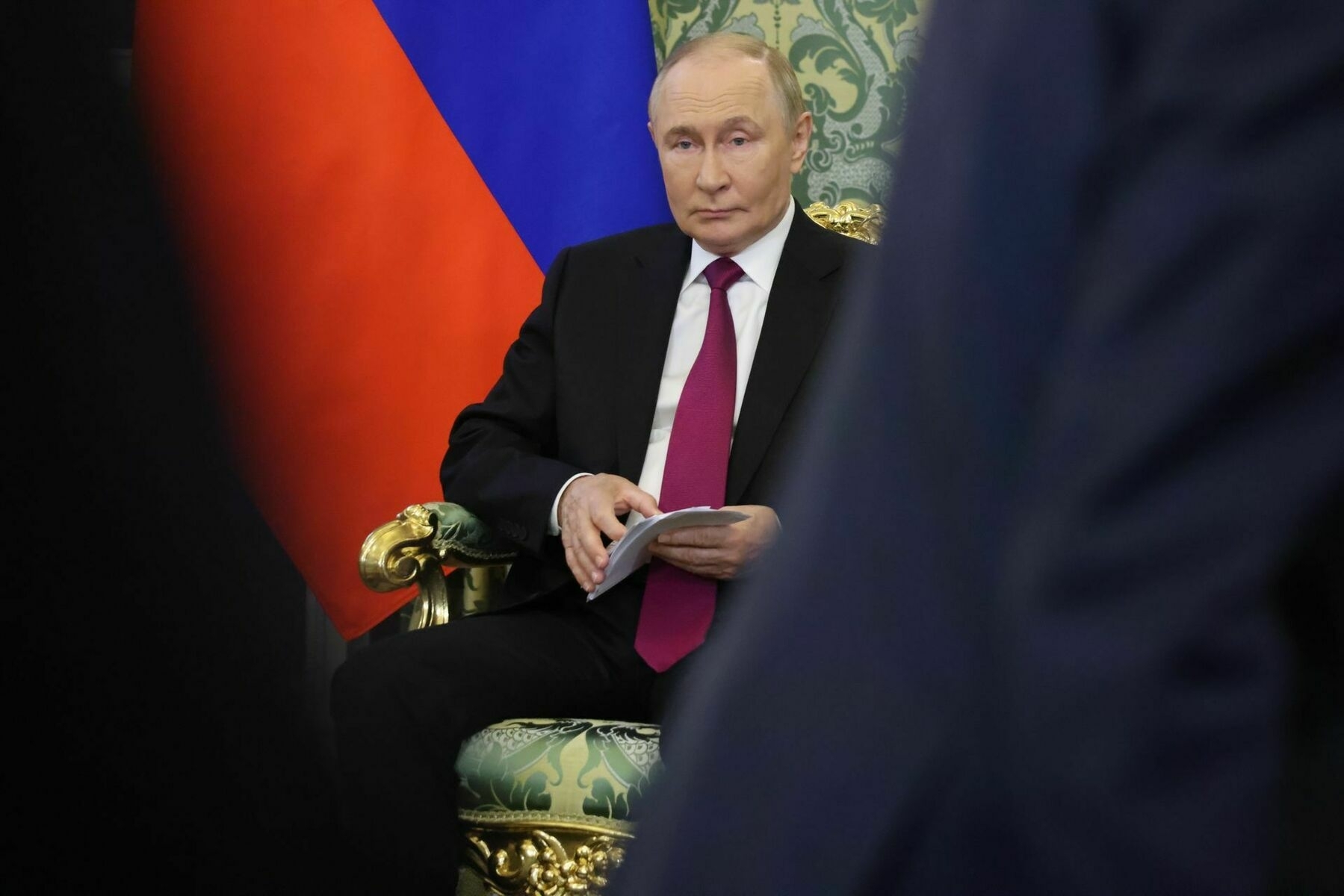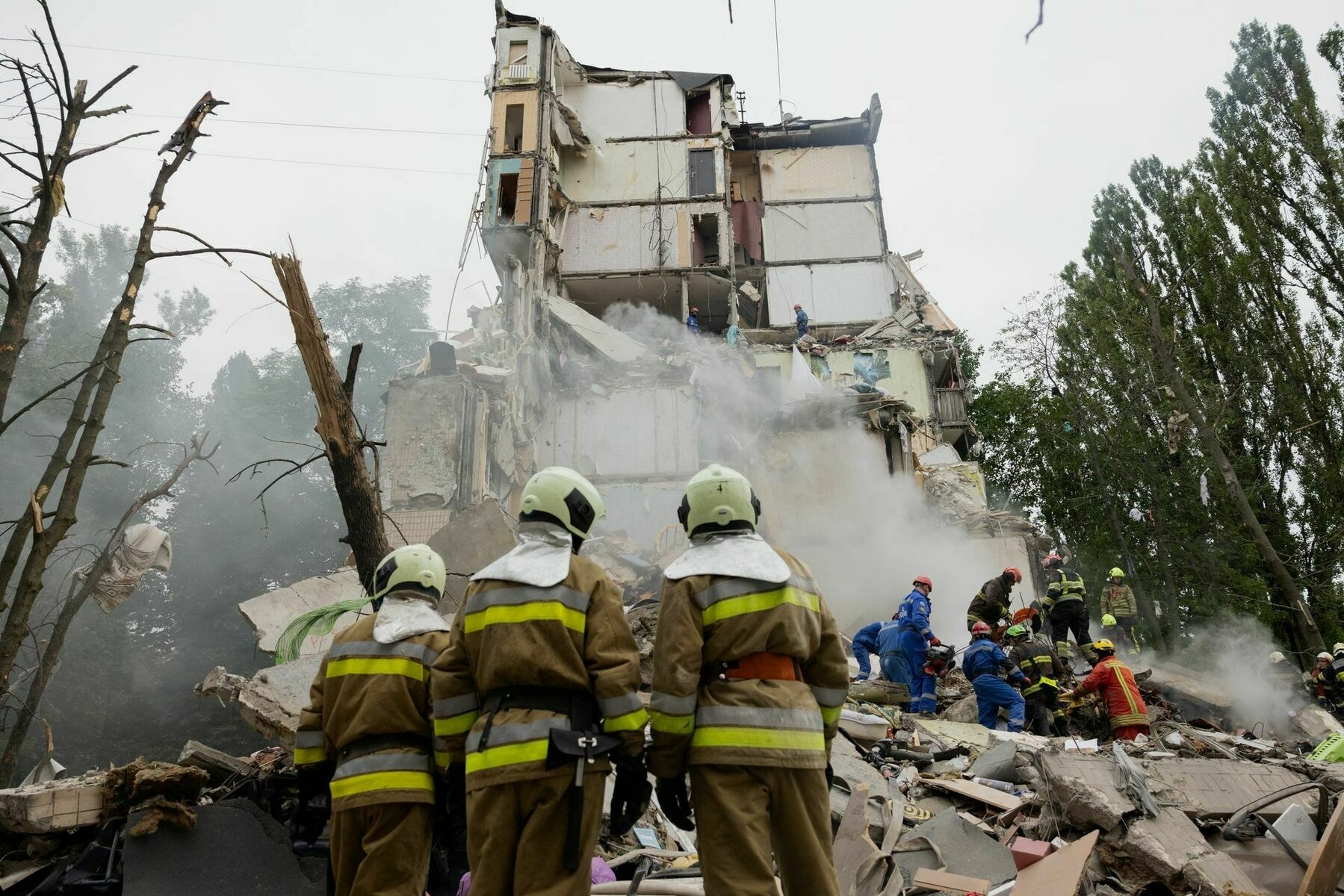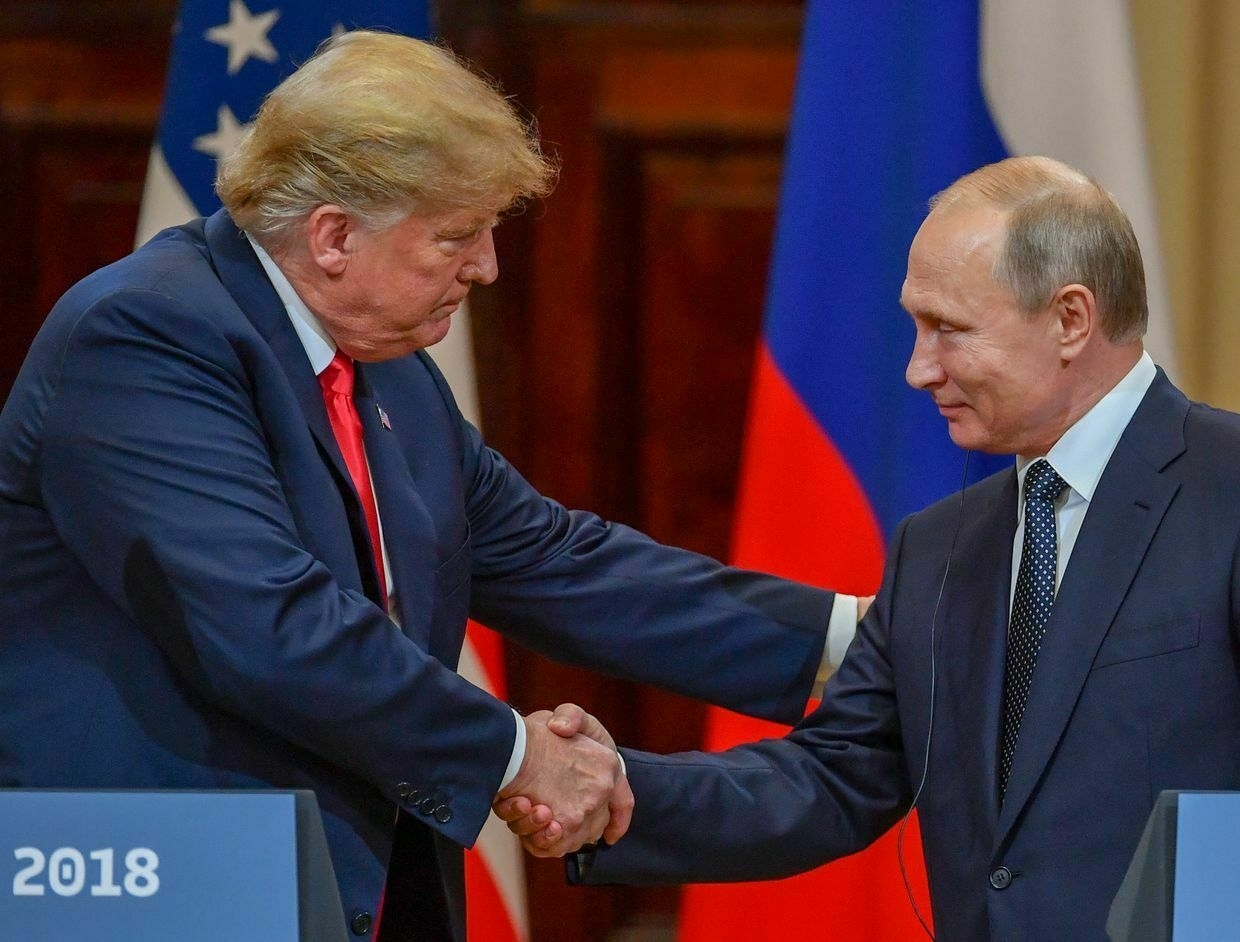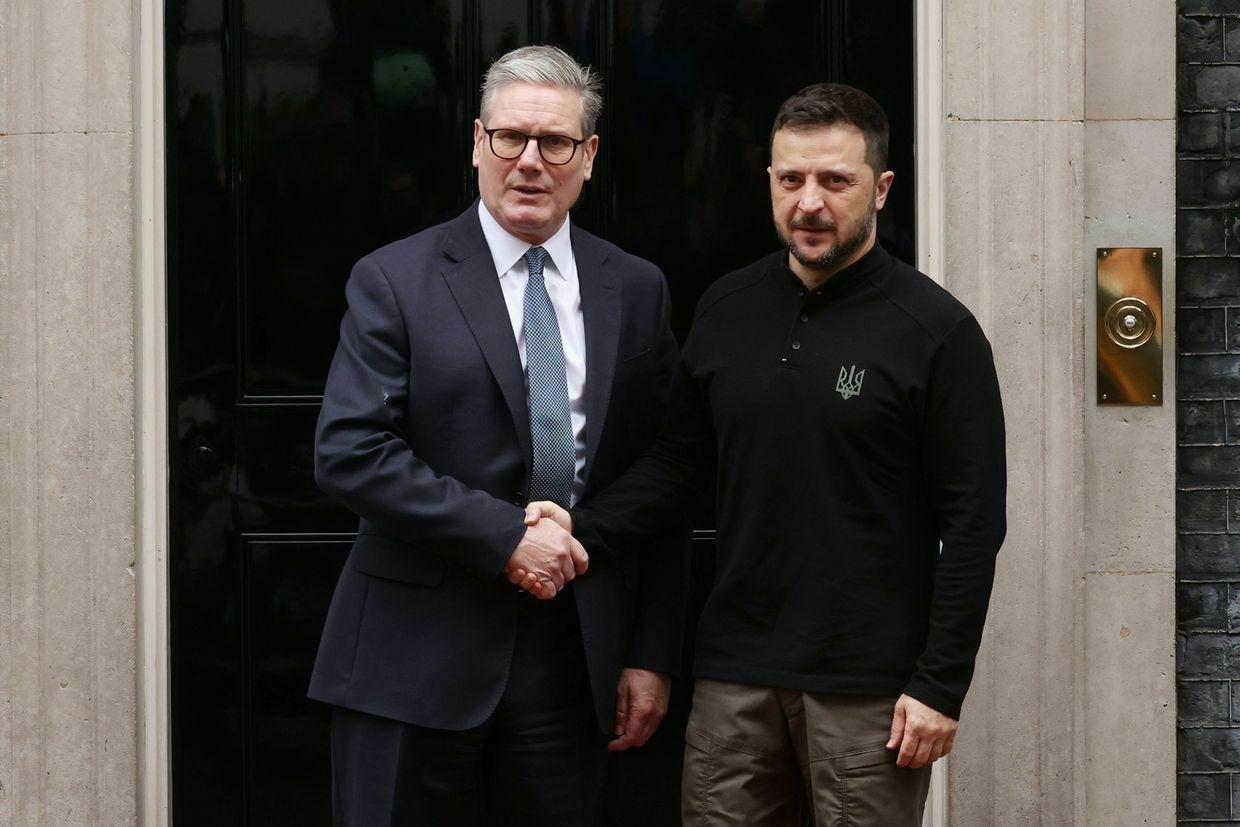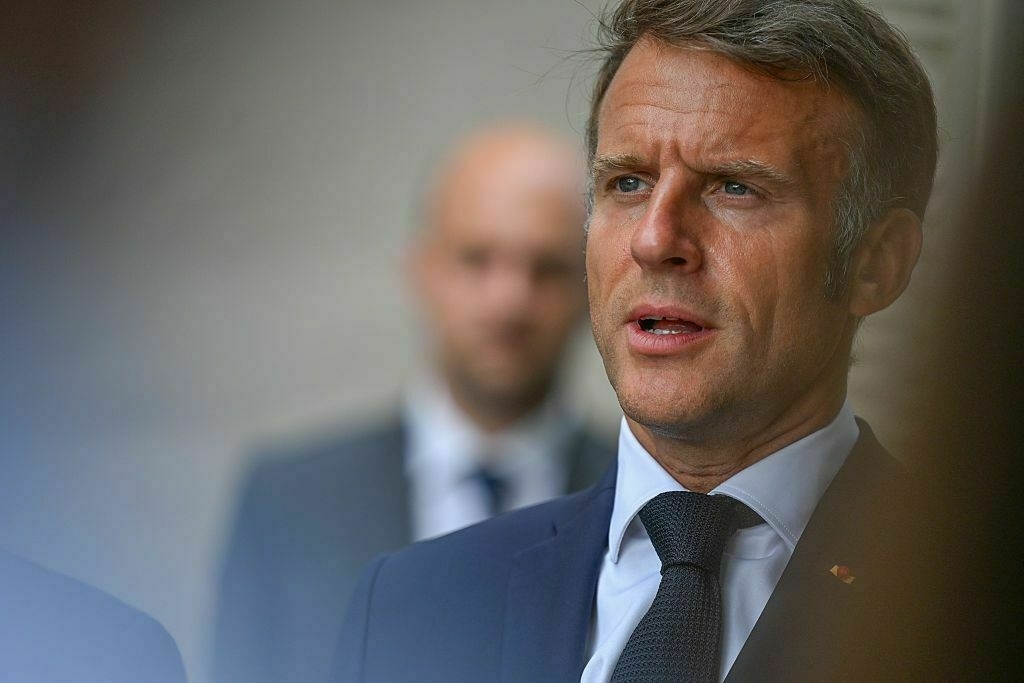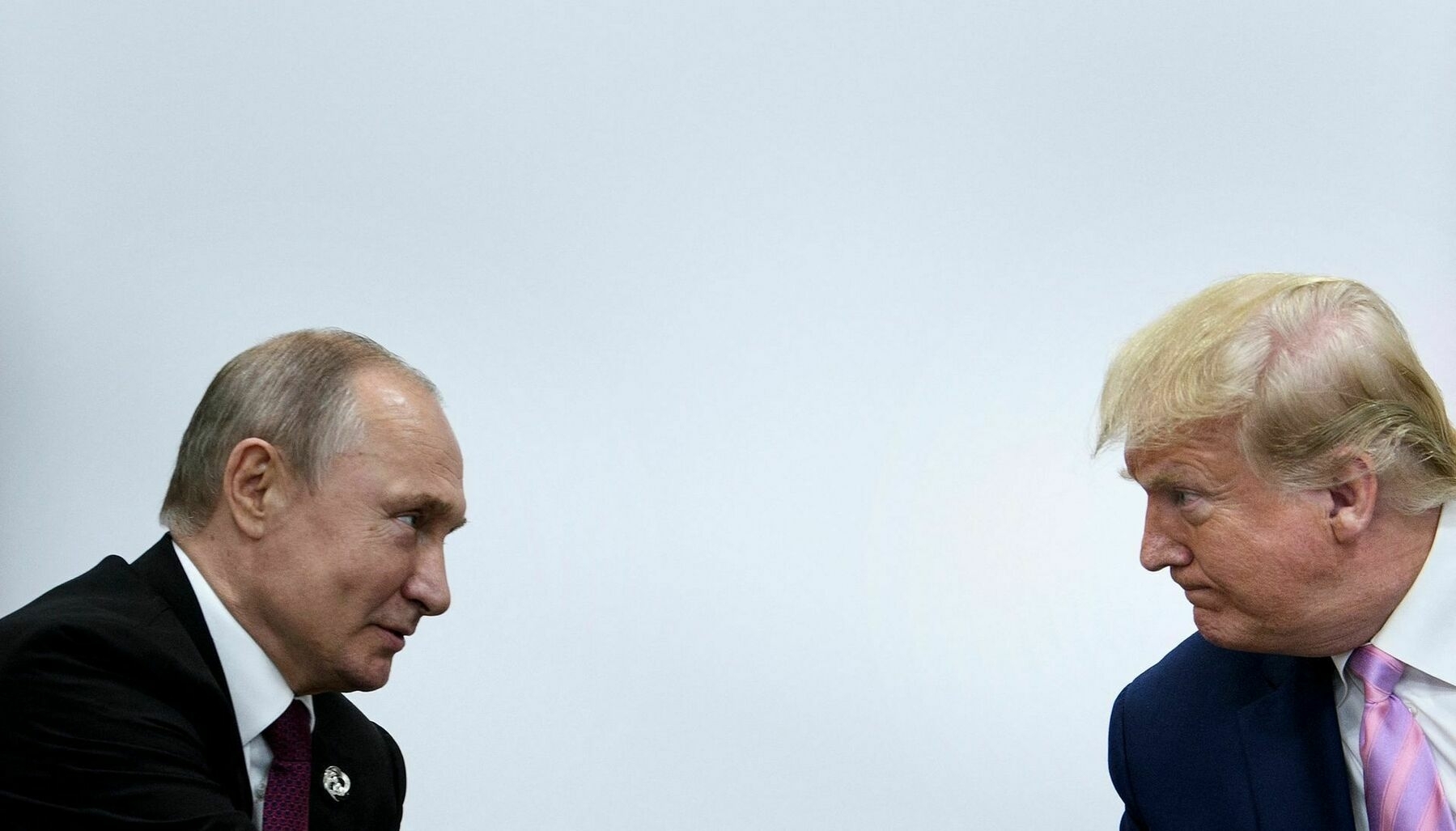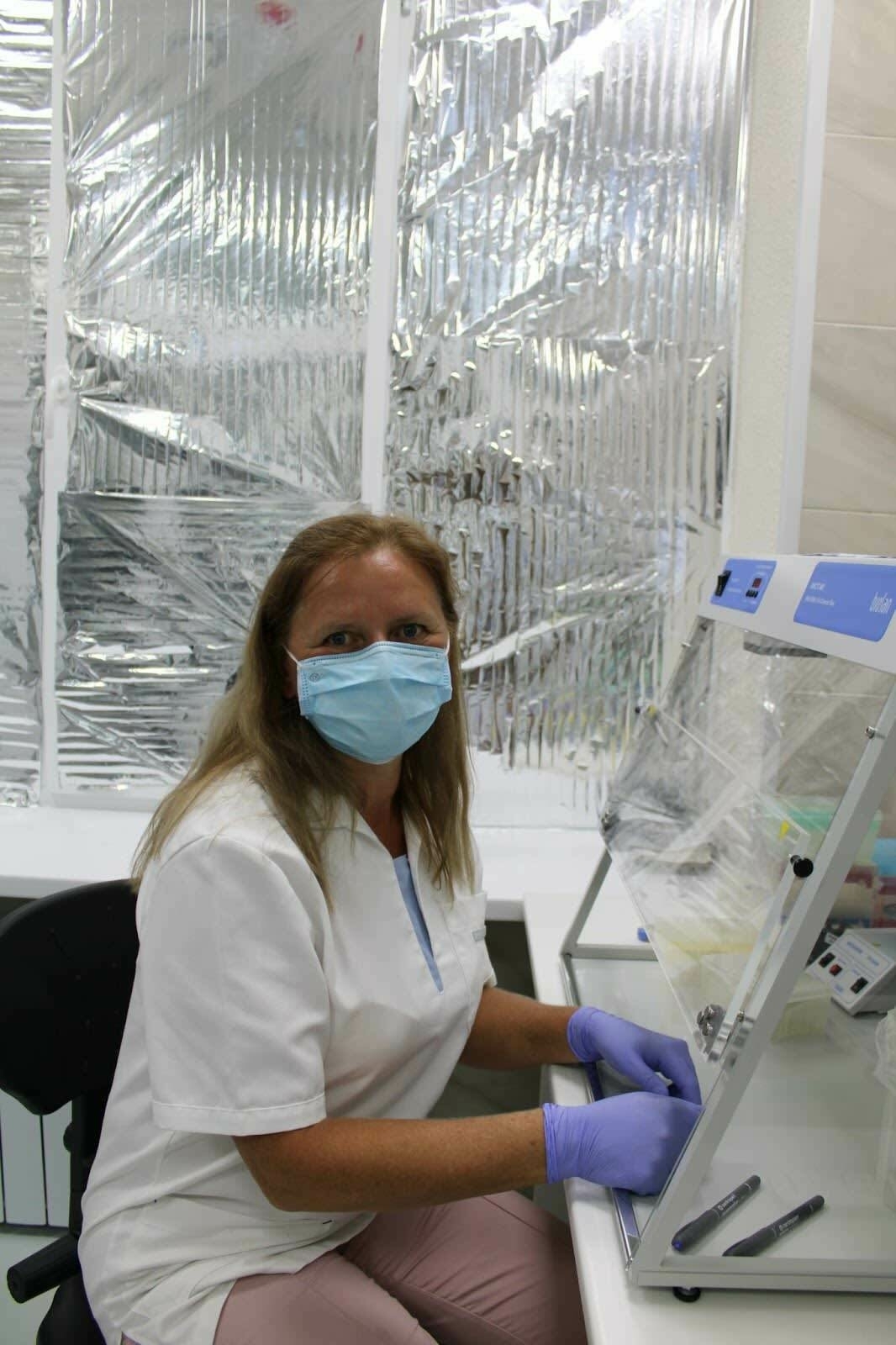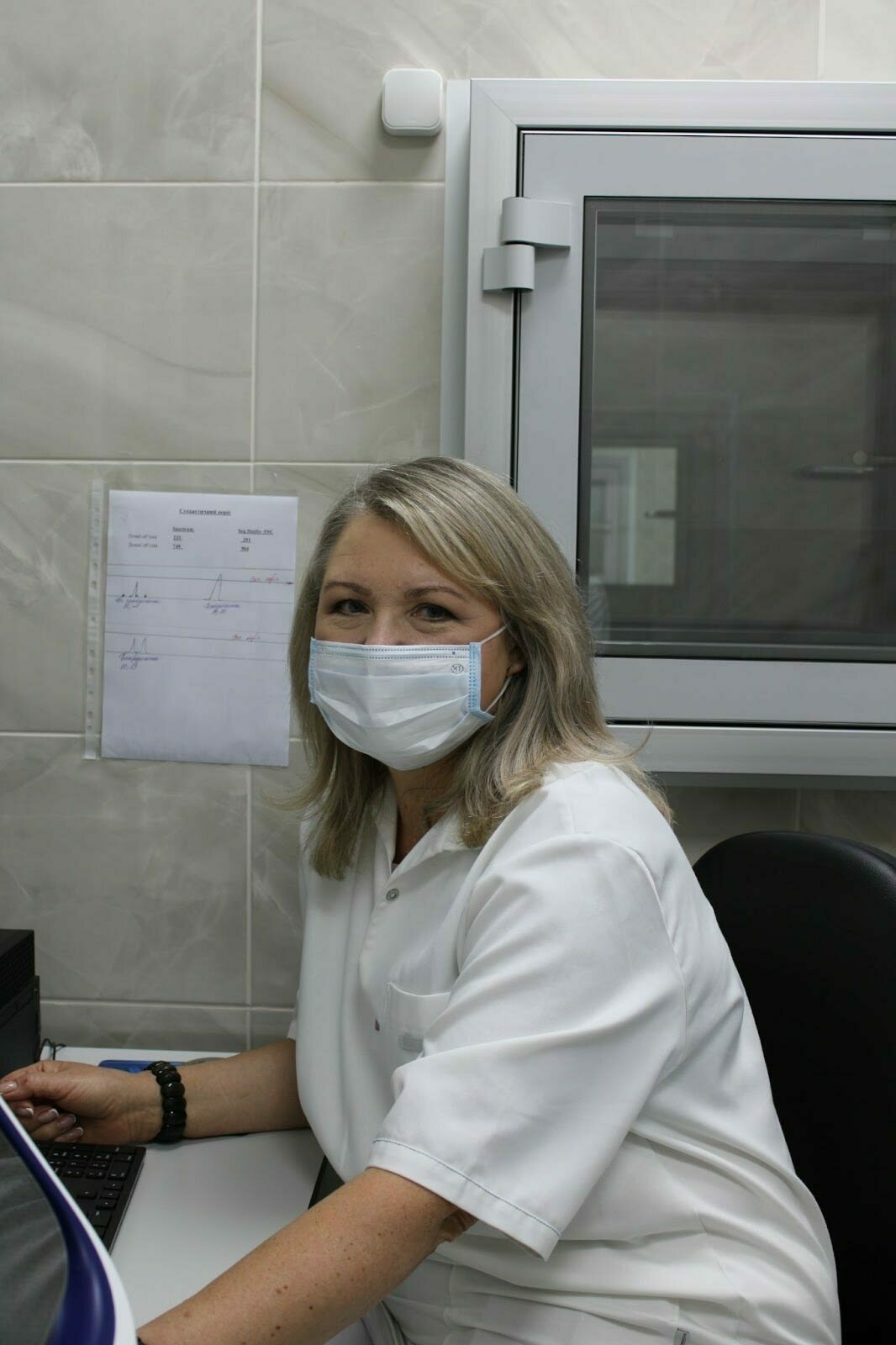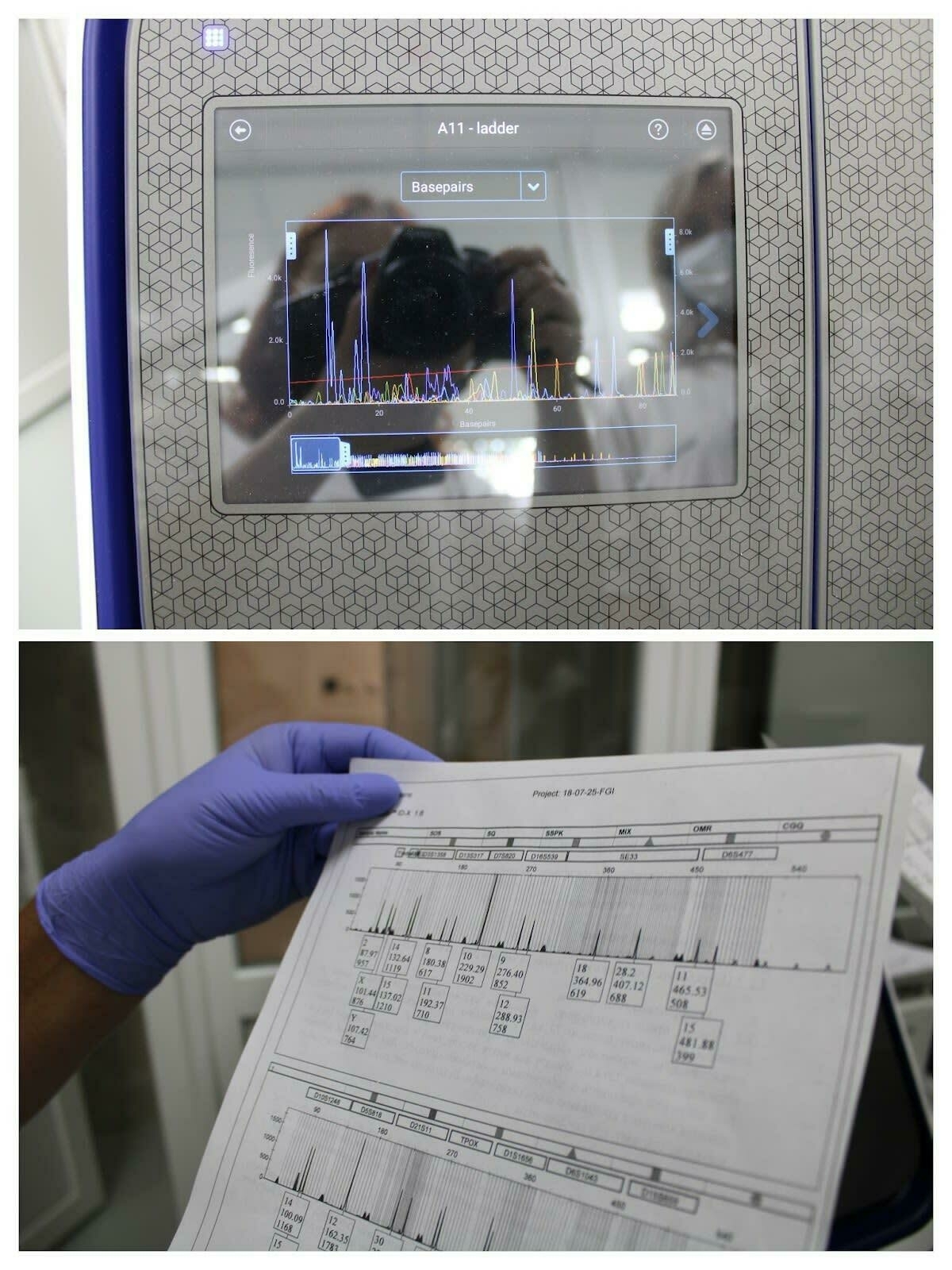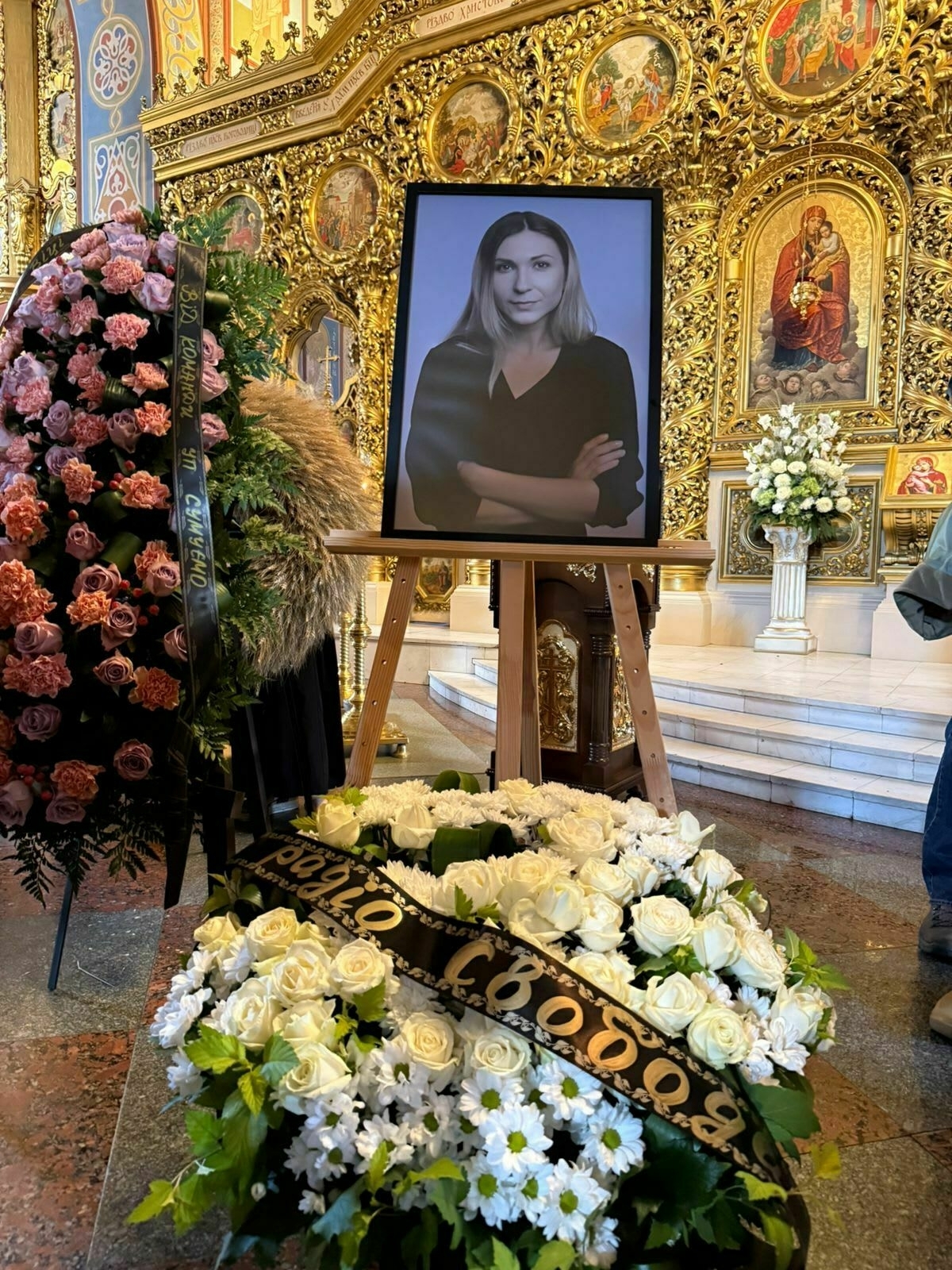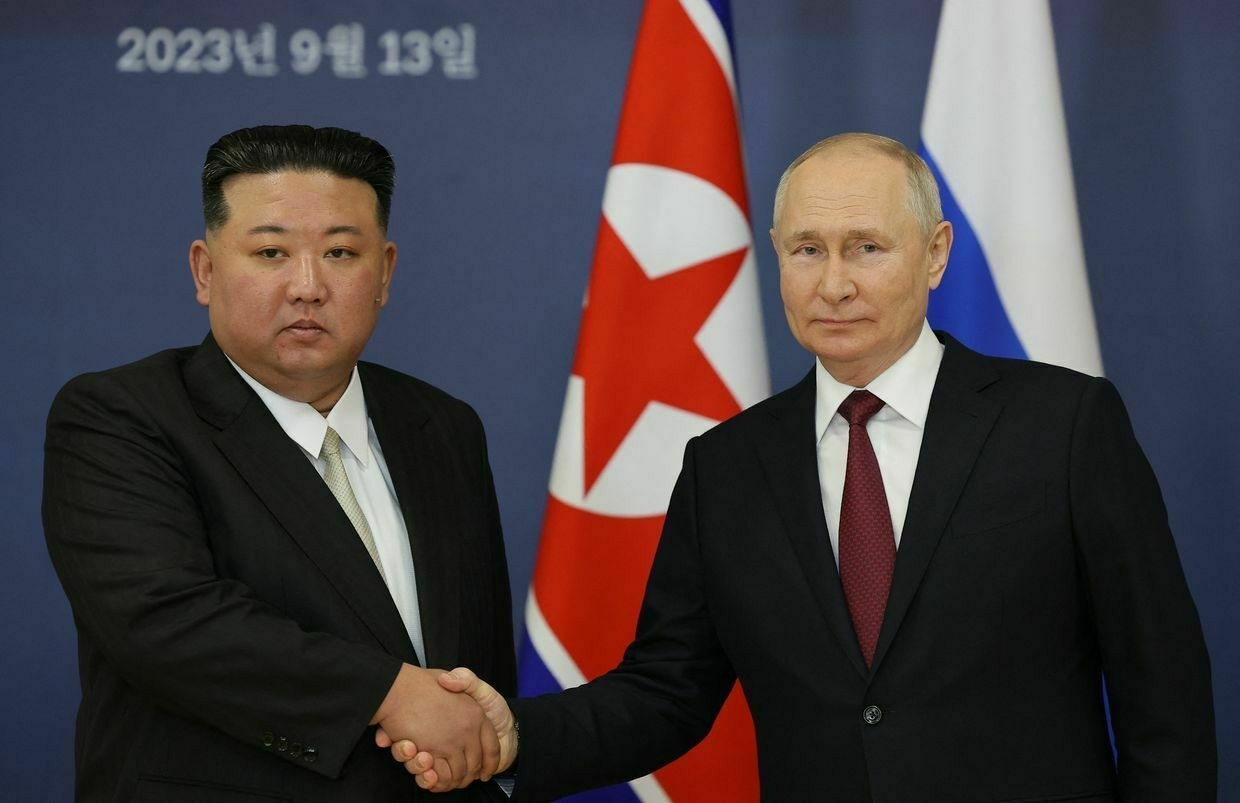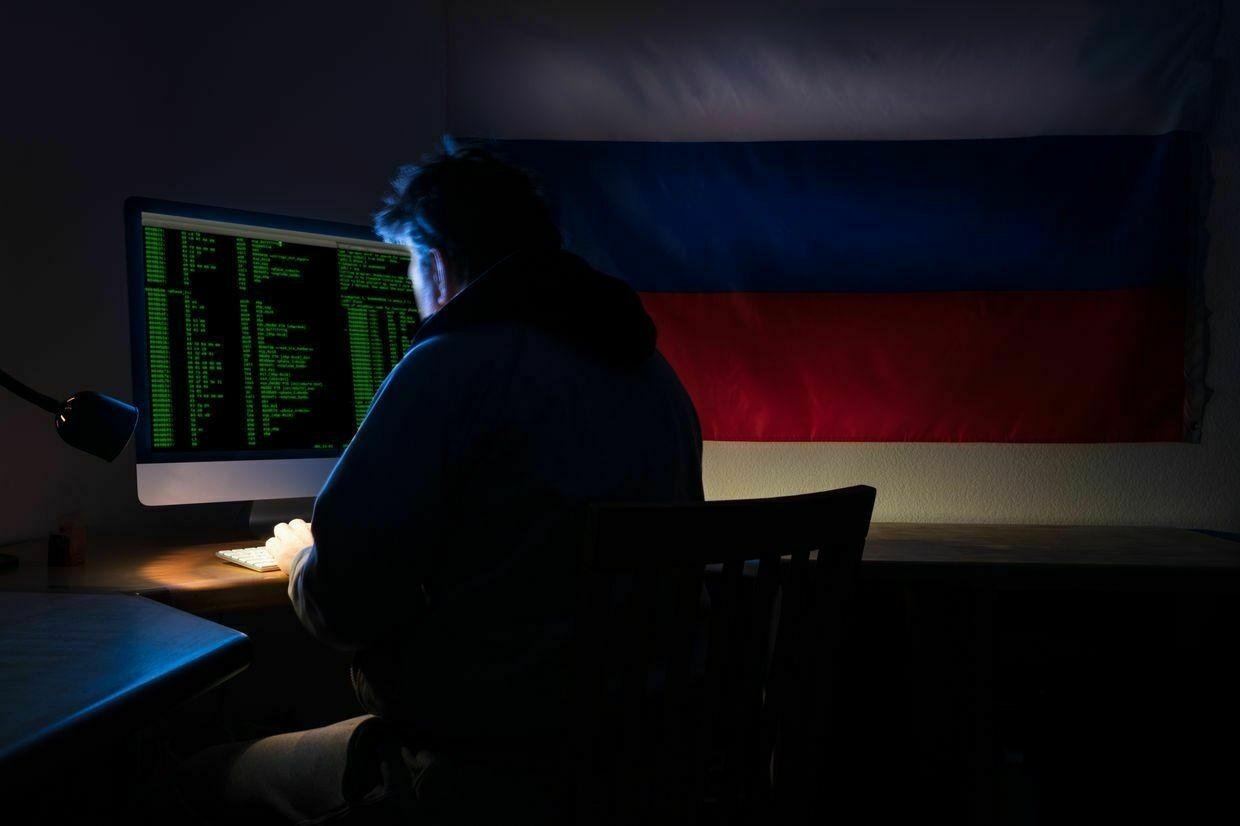-
Russia may be preparing to test nuclear-powered missile ahead of Trump talks, Reuters reports
-
July saw highest civilian casualties in Ukraine since 2022, UN says ahead of Trump-Putin summit
-
Lavrov to accompany Putin for talks with Trump in Alaska
Russian Foreign Minister Sergey Lavrov will accompany President Vladimir Putin to Alaska for a meeting with U.S. President Donald Trump, Alexey Fadeev, deputy director of the Information and Press Department at Russia’s Foreign Ministry, said at a press briefing.
“We believe this meeting should allow the leaders to focus on discussing all issues, from the Ukraine crisis to obstacles to the normal functioning of the bilateral dialogue, which is of critical importance for ensuring international peace and stability,” Fadeev said.
He confirmed Lavrov’s participation but declined to discuss the summit agenda, directing questions to the Kremlin press office.
Lavrov’s involvement suggests his U.S. counterpart, Secretary of State Marco Rubio, could also take part. It’s not yet clear who else will attend. U.S. Defense Secretary Pete Hegseth said recently he “may” also participate.
Analysts have warned that Putin may try to mislead Trump again: Ukraine and European leaders are understandably concerned the U.S. president could fall into a trap when he meets with the Russian dictator, despite the meeting being arranged hastily.
At the same time, media reported that White House officials do not expect a “breakthrough” from the talks and view the summit as a step toward a peaceful resolution of Russia’s war against Ukraine.
-
Russia unveils delegation, schedule for Putin-Trump Alaska meeting
-
Zelensky to reportedly meet Starmer in UK after call with Trump
-
US ready to provide Ukraine security guarantees, but opposes NATO membership, Macron says
-
Trump may offer Putin minerals access in exchange for peace, Telegraph reports
-
As Putin, Trump debate Ukraine's future borders, Donetsk Oblast residents are split on what they would accept to end the war
KRAMATORSK, Donetsk Oblast — U.S. President Donald Trump began to actively push Ukraine to accept losing its land and people to Russia, following years of brutal, all-out war.
People in Kramatorsk, the largest Ukrainian-held city in Donetsk Oblast — a region that Russia wants and Trump is thinking of
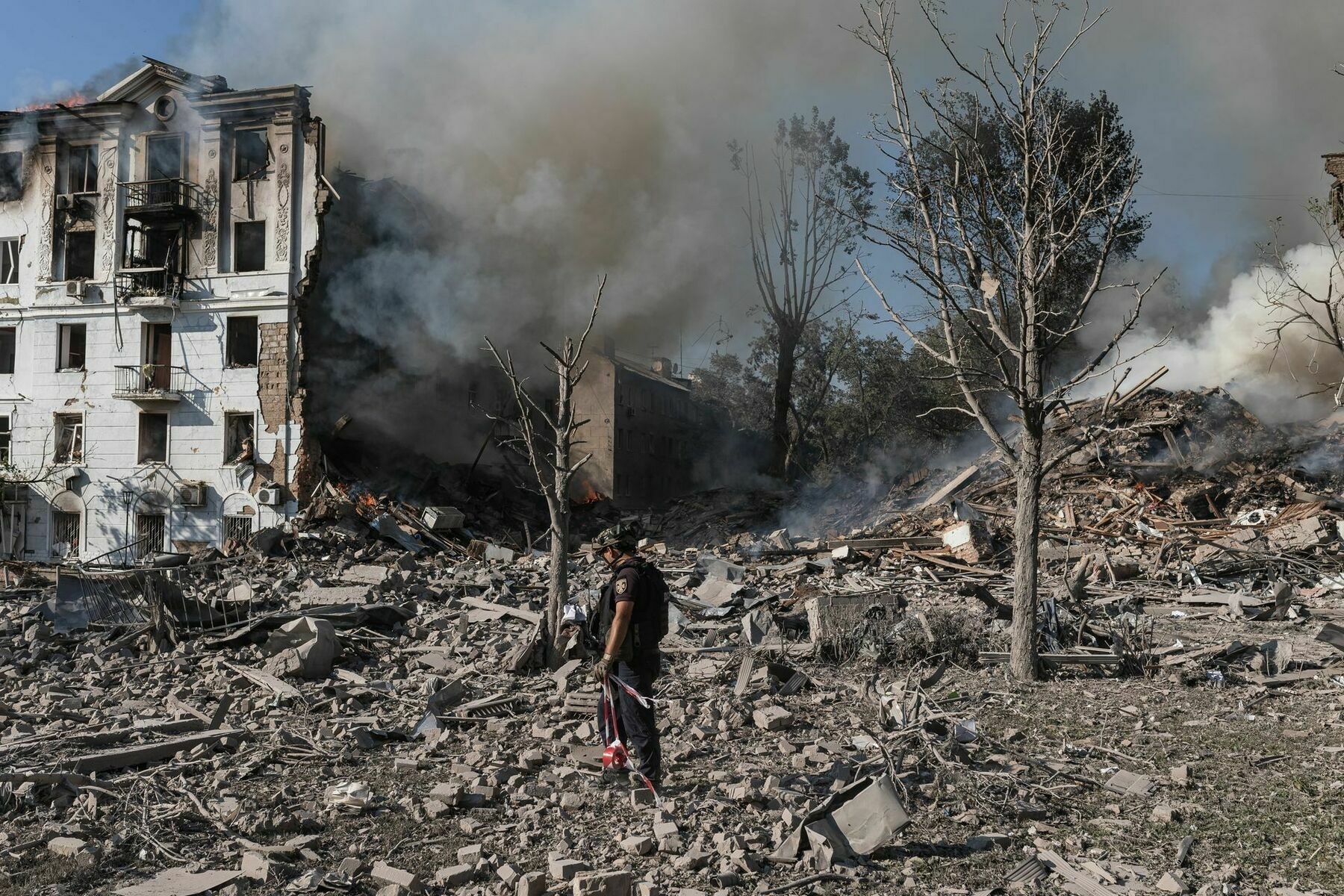
-
Ukraine war latest: Trump to push ceasefire in Alaska meeting with Putin, says Zelensky after call with US president
Key developments on Aug. 13:
- Trump to push ceasefire in Alaska meeting with Putin, says Zelensky after call with US president
- Ukraine strikes oil facility in western Russia in overnight drone attack, Kyiv confirms
- Ukraine open to discussing aerial truce with Russia, Zelensky's aide says
- Over 121,000
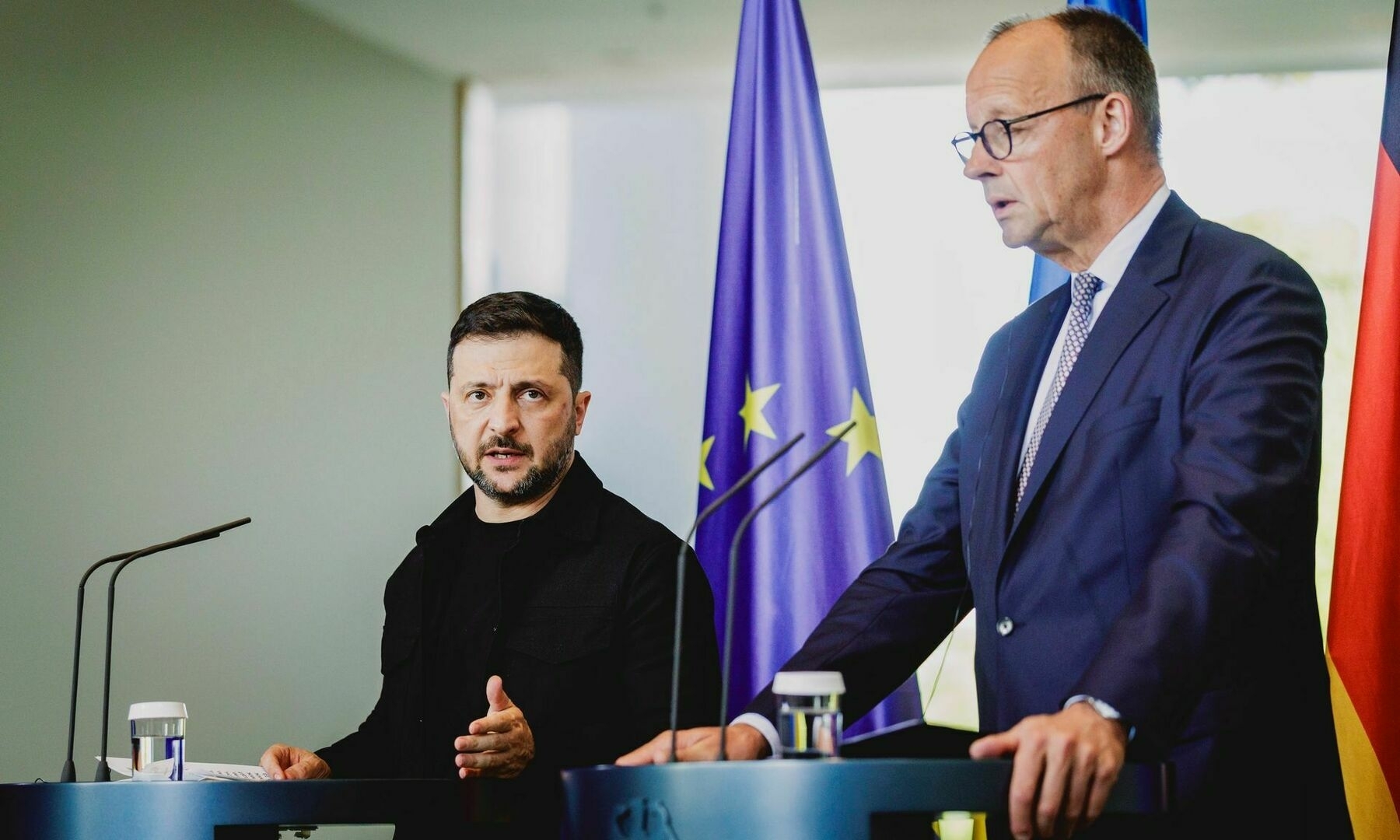
-
Putin consults Kim Jong Un ahead of Alaska summit with Trump
Russian president Vladimir Putin is preparing to fly to Alaska for a meeting with Donald Trump and is calling allies ahead of the Aug. 15 summit. The Kremlin reported he spoke with Kim Jong Un.
According to the Kremlin, Putin thanked his counterpart for “support during the liberation of the territory of the Kursk region,” praised “the courage and heroism of DPRK fighters,” and shared with Kim “information in the context of the upcoming talks with Trump.”
The Kremlin press service noted that since June 2024, Moscow and Pyongyang have had a treaty on a “comprehensive strategic partnership.”
North Korea’s state media also reported on Putin’s call with Kim, saying it took place in a “warm, comradely atmosphere.”
However, they did not separately state that the two discussed the Alaska summit with US President Donald Trump, noting only that Putin and Kim “exchanged views on issues of mutual interest.”
Kim then firmly assured that the DPRK “will always remain faithful to the spirit of the treaty between the DPRK and Russia and will continue to fully support all measures of the Russian leadership.”
Kim Jong Un met Donald Trump in the DMZ in 2019, their third meeting. The first-ever US–North Korea summit took place in 2018 in Singapore, where Trump and Kim signed a joint statement in which Pyongyang pledged to denuclearize the Korean Peninsula in exchange for US security guarantees. North Korea ultimately did not give up its nuclear weapons.
Earlier, Putin called the leaders of China, India, South Africa and Brazil. He also held phone talks with the presidents of Belarus, Kazakhstan and Uzbekistan.
-
Kyiv says it’s ready to discuss halting air attacks with Moscow
Ukraine is prepared to consider an “air ceasefire” with Russia, Mykhailo Podolyak, an adviser to the head of President Volodymyr Zelensky’s office, said in an interview with Italy’s Corriere della Sera published Wednesday, August 13.
He said the United States, as one scenario, proposed to the Kremlin a full ceasefire - including a halt to missile strikes and drone attacks - but Moscow rejected the offer.
“None of these scenarios was accepted by Russia. Air strikes are a key instrument of Moscow’s psychological pressure on Ukraine and of influencing our position,” Podolyak said in response to a question. “Russia is unlikely to give up the option of using aircraft and the mass use of drones. However, Ukraine is ready to discuss it, ready to consider this scenario and views it as a starting phase for realistic negotiations.”
Podolyak described a “second instrument” that escalates Russia’s war as “relentless attacks along the entire front line, which, however, are being repelled” by Ukraine’s Armed Forces.
On August 5, Volodymyr Zelensky said he fully supports the US president’s proposal for an immediate ceasefire.
“We have tried many different formats for how to stop the fire, how to stop the killing. We spoke with Russia and proposed silence in the skies - no missile and drone strikes on civilian infrastructure and on the energy sector. All of this was violated by the Russians,” the Ukrainian president said.
A meeting between US President Donald Trump and Russia’s Vladimir Putin in Alaska will be held at the Elmendorf-Richardson military base on Friday, August 15.
White House Press Secretary Karoline Leavitt said at least part of the meeting will be one-on-one with only interpreters present, without advisers.
Trump has called the meeting a “trial.” “The President feels: ‘I need to sit down with this guy at the table. I need to meet him in person. I need to hear him in person. I need to assess the situation by looking at him,’” US Secretary of State Marco Rubio said, commenting on the summit.
-
Trump likes a deal. Zelensky should offer him Ukraine’s government tech — for free
President Donald Trump’s policies on Ukraine follow not an overarching strategy but a single question: Can he sell them? President Volodymyr Zelensky knows this, presenting Trump with a generous deal for critical minerals and partnerships with American drone manufacturers.
But the Ukrainian president has yet to make what
-
Trump to push ceasefire in Alaska meeting with Putin, says Zelensky after call with US president
-
Putin holds advantage ahead of Trump meeting, expert says
The Kyiv Independent’s Kollen Post sits down with Michael McFaul, former U.S. ambassador to Russia and political scientist, to discuss the upcoming high-level talks between U.S. President Donald Trump and his Russian counterpart, Vladimir Putin, scheduled for Aug. 15 in Alaska, as well as both sides’ strategies for the meeting.
-
Drones in Russia, Zelenskyy in Germany, and preparations for the Trump-Putin meeting
-
Zelensky heads to Berlin for video talks with Trump as Merz cuts short vacation ahead of Trump-Putin meeting
Ukrainian President Volodymyr Zelensky is heading to Berlin on an unannounced visit. He will sit alongside Friedrich Merz at the Federal Chancellery, taking part in a videoconference with U.S. President Donald Trump. Bild reports that Merz cut short his vacation for the meeting.
The aim of the sudden summit in Berlin is to prepare for the August 15 meeting between Vladimir Putin and Donald Trump in Alaska. Chancellor Merz will coordinate with several heads of state and government on potential peace talks, Bild reports.
The purpose of the Merz–U.S. president video meeting is to discuss the potential fallout from Trump’s talks with Kremlin leader Vladimir Putin. There is speculation the chancellor wants to head off a dubious deal that would ultimately come at Ukraine’s and Europe’s expense.
According to the German government, a videoconference with Trump, Zelensky and European heads of government is planned in several rounds. The focus will be on how to respond to Russia’s territorial claims and what security guarantees could be implemented.
U.K. Prime Minister Keir Starmer said on the morning of August 13 that he is “determined to achieve a just and lasting peace, underpinned by robust and reliable security guarantees that will deter Russia from threatening Ukraine in the future.”
Before consultations with Trump and U.S. Vice President J.D. Vance, a virtual meeting with European partners is set for 2 p.m. In addition to the United Kingdom, France, Italy, Poland and Finland will take part, along with European Commission President Ursula von der Leyen, European Council President António Costa, NATO Secretary-General Mark Rutte and Volodymyr Zelensky.
At 3 p.m., Trump and Vice President J.D. Vance will join the European roundtable. The effort is aimed at persuading Trump to align with the European position.
At 4:30 p.m., the Europeans will hold further virtual consultations without the Americans to assess the call with Trump.
British officials have urged EU leaders to stop “unhelpful commentary” about looming Ukraine peace talks between Donald Trump and Vladimir Putin, warning Emmanuel Macron and Friedrich Merz that public demands could “antagonize” the U.S. president.
-
How bones tell stories of missing Ukrainian soldiers
Editor’s Note: War is more than the booms and the bangs. Ukraine is more than just a place where violence is occurring.
Some of the most important stories happen in the silence: the return of bodies, diligent work in quiet labs.Think this sort of unique journalism is important? Upgrade now or hit the tip jar to support us!
Inna opened the freezer and took out a zip-lock bag containing rotten bones — potentially, the remains of a Ukrainian soldier who had yet to be identified.
“This one is still in good condition. Before this, we received some from Azovstal, where they were in really bad shape,” said Inna Druchinina, head of the forensic medical laboratory of the Main Bureau of Forensic Medical Examination in Kyiv.
The dozens of bones waiting to be identified are located on the second floor of the morgue. The gut-wrenching odor of death can be smelled even from outside the building.
Previous talks between Ukraine and Russia in Istanbul did not lead to any significant breakthroughs regarding a peace deal. However, they did result in Russia returning around 6,000 bodies of Ukrainian soldiers in June — nearly half the total repatriated since the start of the full-scale invasion.
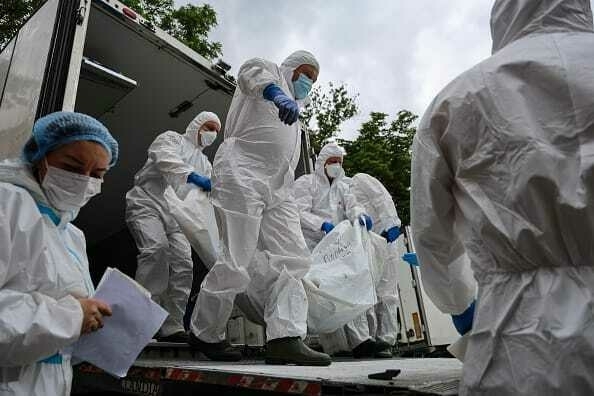
Forensic scientists unloaded from a truck onto a stretcher with bodies of fallen Ukrainian soldiers repatriated as part of the "6,000 For 6,000" exchange on June 26, 2025 in Kyiv, Ukraine. Photo by Ivan Antypenko/Suspilne Ukraine/JSC "UA:PBC"/Global Images Ukraine via Getty Images. Russia has complicated the identification process by removing organs from bodies, mixing remains from different soldiers in a single bag, and even sending back the bodies of Russian soldiers, violating international law on repatriation.
Identifying bodies has become increasingly important during the war. Families often endure long periods without news from loved ones on the front line, clinging to the faint hope they are still alive. Identification gives the soldier an identity and offers the family closure and the opportunity to say their proper goodbyes.
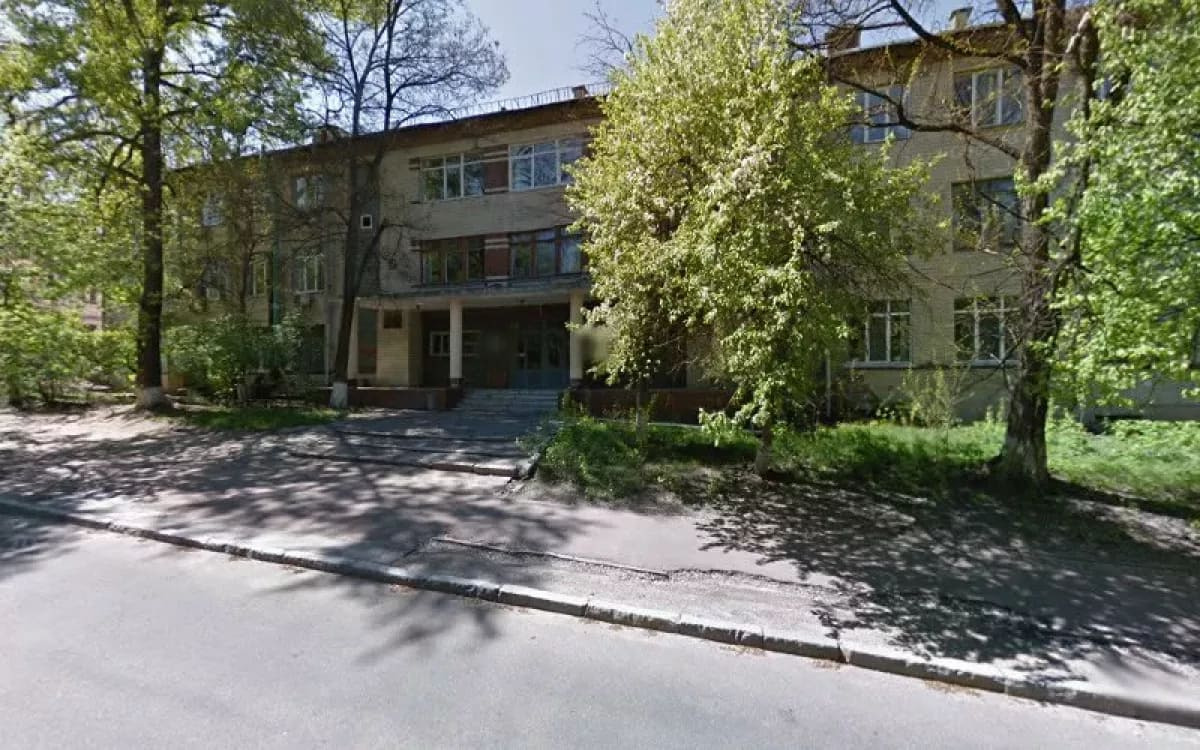
Main Bureau of Forensic Medical Examination of the Ministry of Health of Ukraine, Kyiv. Photo from RateList. At the Department of Forensic Immunology, Cytology, and Genetics, the DNA testing of the bodies’ remains takes place — a key moment in the process of identification.
“This is our job, someone has to do it… It has to be precise, balanced, planned, and responsible work… First comes the identification of the body, then everything else,” Tamara Savchenko, acting head of the department..
Tamara and Inna started their career in forensic biology almost 30 years ago. They have been working together at this government department for six years.
Since the start of Russia’s full-scale invasion, laboratories have been adding DNA testing to their programmes. The number of forensic bureaus grew from five to 19 in 2024.
The bodies of soldiers only started to arrive in April this year, once the renovation and training had been completed.
To this date, the laboratory has identified 50 bodies. About 170 are waiting to be analyzed, and 300 are expected to be delivered.
“The workload is very heavy. We are exhausted, both physically and mentally, and sometimes we work until we can't go on any longer, until we reach the point where we say, ‘That's it, we're not working anymore today,’” Tamara said.
In certain cases, bodies lie exposed on the battlefield for months before being collected, which means the bodies begin to decompose. In these cases, traditional methods of identification via tattoos, fingerprints, dental records, or scars do not work, and they must rely on DNA testing.
The process begins with a general examination of the bodies, where specialists determine the condition in which the bodies were brought in. They collect biomaterial and label it.
Each bag and each piece of body inside it is given a number.
For example, if the bag’s number is 006, the first body part will be tagged as 006-1.
When they receive several pieces in one bag, they often assume there are the remains of different people rather than the fragmented body of just one person.
“The last time we had a maximum of nine items in one bag, nine probable bodies in one bag,” Tamara said.
Tamara and Inna often receive bones that are in poor condition, including charred ones. The chances of obtaining DNA from such samples are very low, they told The Counteroffensive.
The bones are also covered with rot and remnants of human tissue, so they are first washed, soaked in hydrogen peroxide, and then rinsed.
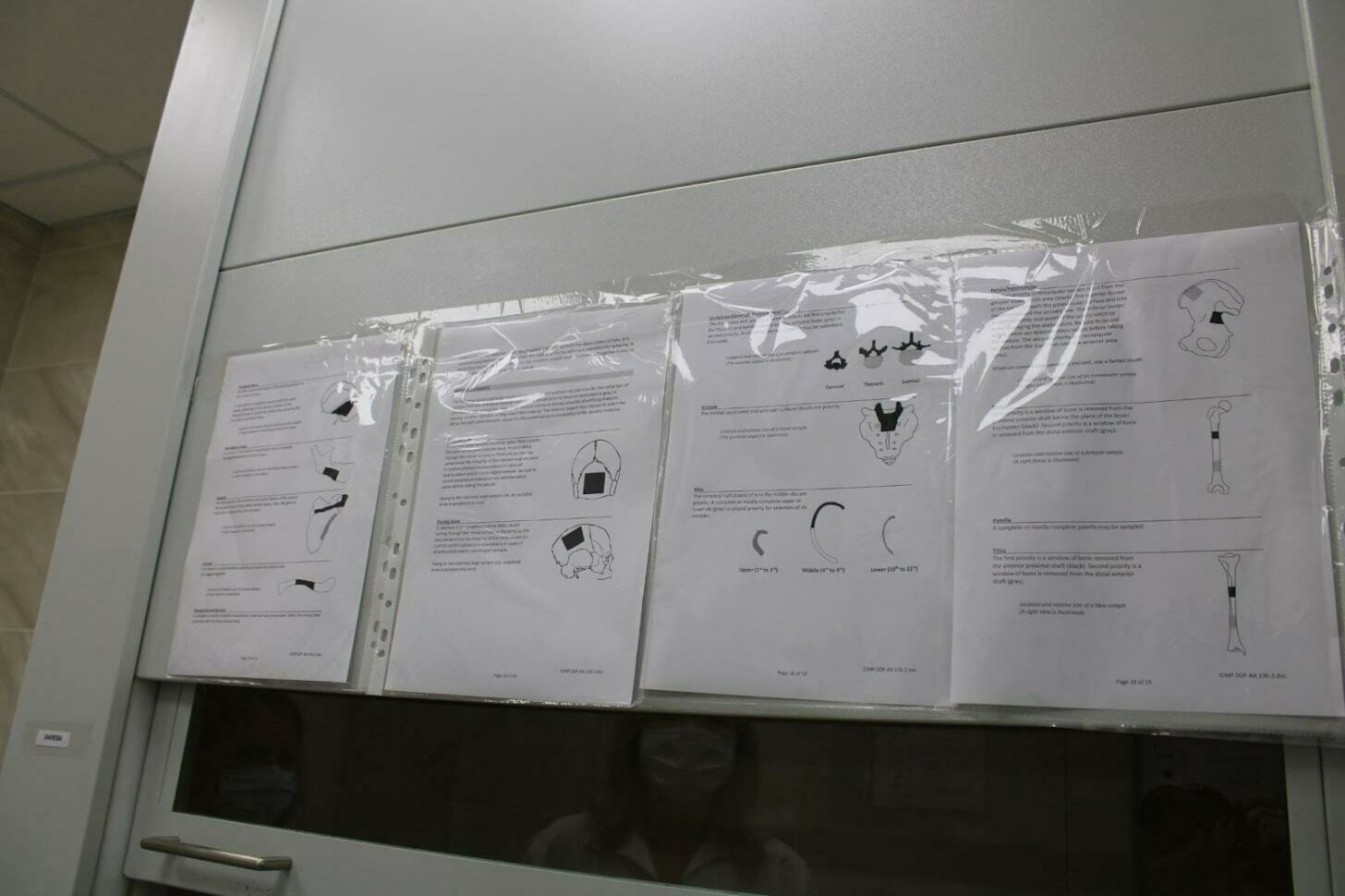
Instructions showing the bones’ parts with the highest concentration of DNA. Photo from The Counteroffensive. “At first glance, they all crumble in your hands,” Inna said regarding some charred bones they have had to work with.
Once the bone dries, it is cut into smaller pieces, crushed, and turned into powder. The DNA is extracted by mixing the bone powder with reagents, which are components used for DNA detection.
The process does not always work, Inna explained. If the bone is too old or has low DNA concentration, getting a sample might not be possible, she added.
If the process works, the forensic techs obtain the DNA information.
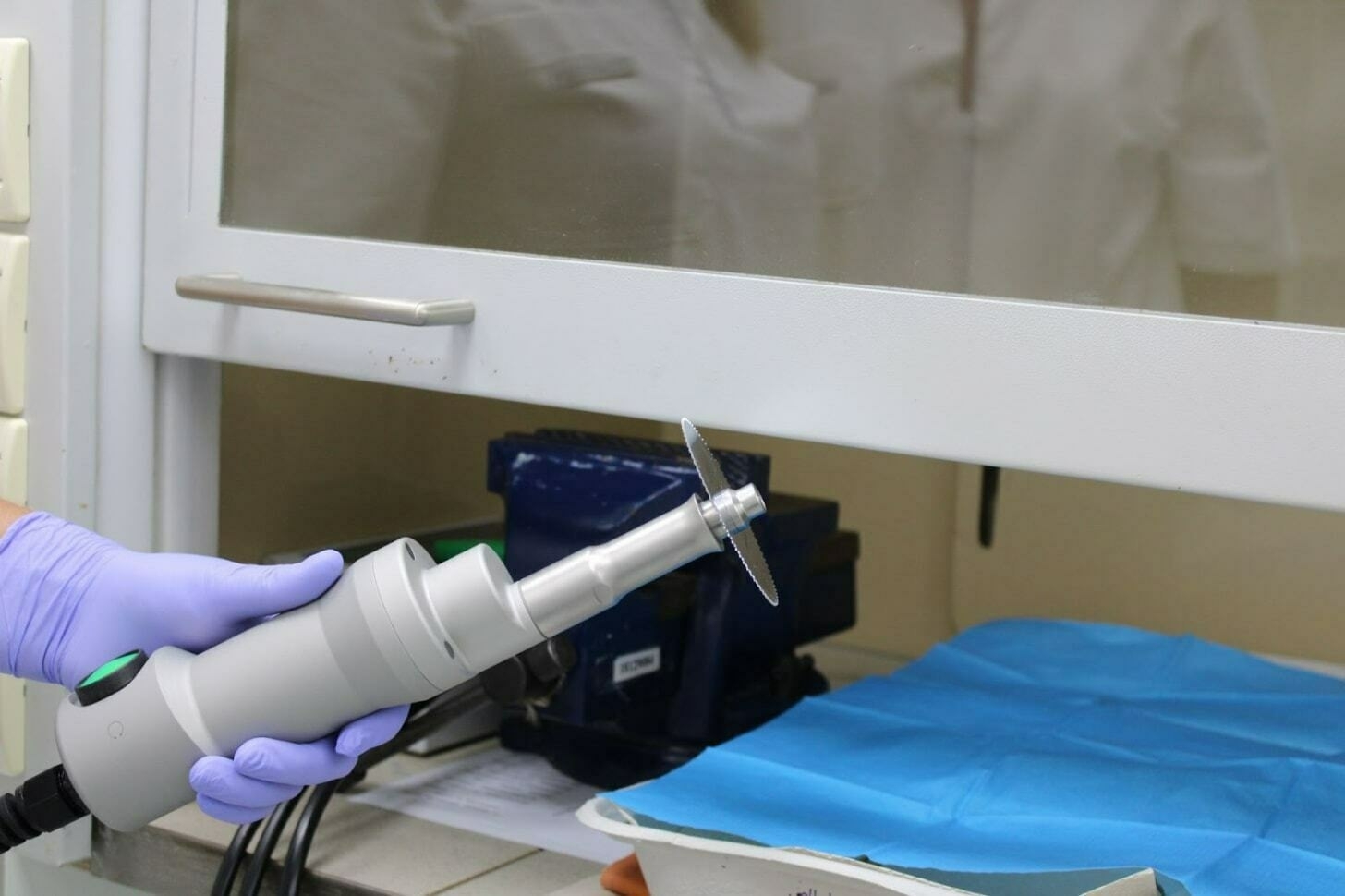
The machine and blade are used to saw bone fragments. The remains are covered with a blue cloth. Photo from The Counteroffensive. 
Samples in a thermo-shaker that helps combine samples with the reagent. Photo from The Counteroffensive. Once the results are ready, they insert the information into a DNA database to look for matches with relatives, Inna explained. They also send their results to the investigator who initially ordered the examination. If there is a match, the investigator files for comparative examination and notifies the family.
Until the bodies are identified, the soldiers will be considered missing in action. During this period, families are holding on to the last remains of hope they have, anticipating that their loved ones might be alive.
Until 2022, Ukraine had a criminal DNA database only, which contained samples collected during forensic investigations. However, amid the war, Ukraine’s parliament passed a law to include all crimes related to the war. In addition, the families of missing soldiers can upload their samples to ensure a more efficient matching process.
In May this year, a database was created for each military unit to upload samples of its soldiers.
Right under Inna and Tamara’s office is the morgue yard, where relatives of soldiers and civilians who died can pick up the bodies. Sometimes, the yard is filled with people, especially after a big airstrike.
In those moments, the women close their curtains. It is too hard to watch.
“We try to leave our emotions there [Tamara pointed to the door]... We try not to talk about it [to their families],” Tamara said.
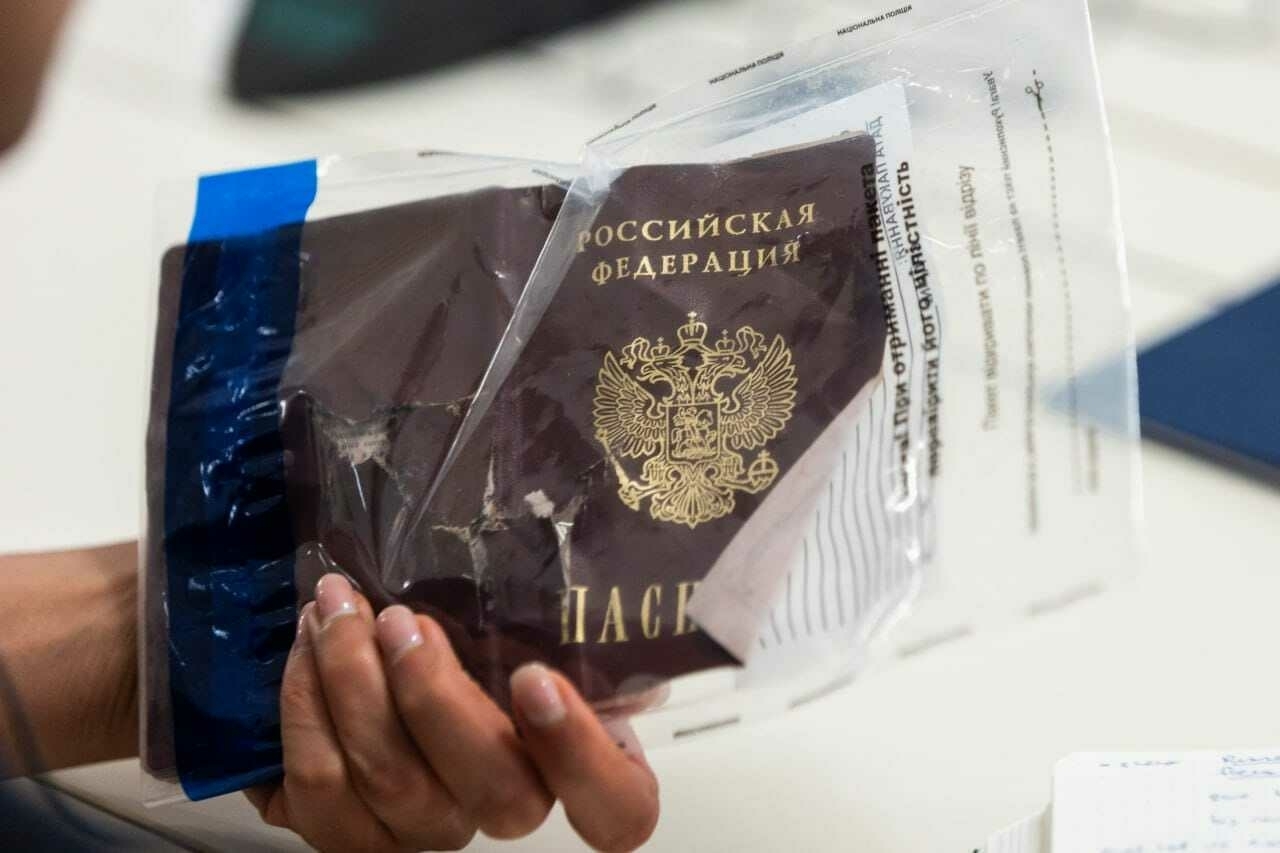
The passport of a Russian soldier, whose remains were given to Ukraine in the repatriation process. Photo from Volodymyr Zelenskyy’s telegram channel. In addition, Russia has also returned the bodies of Ukrainian people without their organs.
Viktoriia Roshchina’s case is the latest to have made headlines worldwide.
She was a Ukrainian journalist who often traveled to the occupied territories to report from the inside, at great personal risk. In August 2023, during one of the trips, she was arrested, and was considered missing. She was officially recognized as a prisoner of war in May 2024.
She was confirmed dead in October 2024, and her body was returned in February 2025, marked as an “unidentified male.”
Her body was in such poor condition that it was only identified due to DNA matching.
The remains showed signs of torture. The Russians had removed her eyeballs, her brain, and her trachea.
It was grotesque symbolism of Russia’s overarching demand: Putin’s regime wants you to ignore the plain facts that you see, set aside your mind’s rationality, and shut up.
Viktoriia’s life was about doing the opposite.Due to DNA testing, her friends and family will at least know that she is now finally at rest.
NEWS OF THE DAY:
By: Sofia Konoplytska
Good morning to readers; Kyiv remains in Ukrainian hands.
UKRAINE FIRST IN EUROPE TO TEST STARLINK DIRECT-TO-CELL: Ukraine has begun testing SpaceX’s Starlink Direct to Cell technology, which turns any 4G smartphone into a satellite terminal without any extra hardware. Kyivstar, the Ukrainian partner operator, plans a public rollout in autumn 2025, making Ukraine the first European country to offer the service.
Officials say the system could ensure nationwide connectivity even in remote areas or during attacks on communications — a critical capability as Russia targets Ukraine’s energy and infrastructure. Initial services will allow messaging via apps like WhatsApp by late 2025, with full mobile data access expected in 2026.
COUNTDOWN TO PUTIN-TRUMP SUMMIT: US and Russian officials are racing to finalize plans for Friday’s summit between Trump and Putin — the first meeting between the two leaders in over four years. Security constraints and peak tourist season left Joint Base Elmendorf-Richardson as the only suitable venue, despite White House concerns about hosting Russia’s president on a US military base.
A private one-on-one session between Trump and Putin is confirmed, underscoring the unpredictability of the talks, although Trump frames it as a low-expectation “listening session.”
Zelenskyy will meet German Chancellor Friedrich Merz in Berlin today. After that, they will take part in a video conference with European leaders, NATO Secretary General Mark Rutte, and Trump.
RUSSIA STEALS MORE GRAIN: The Kremlin plans to increase the amount of grain stolen from occupied regions of Ukraine in its overall harvest, the Center for Countering Disinformation of Ukraine reports. In June, Russia’s grain sales dropped by 34.5 percent due to drought, sanctions, and limited access to agricultural machinery.
Since the start of the full-scale invasion, Russia has stolen around 15 million tons of Ukrainian grain, according to Ukraine’s Ministry of Economy. In 2023 and 2024, grain from occupied Ukrainian territories accounted for roughly 3% of Russia’s total harvest.
In the occupied Zaporizhzhia region, Russia seizes grain from local farmers, and even the harvest intended for local consumption or sowing is taken away. The Ukrainian grain is mixed with Russian grain before being exported, making it harder to track and allowing Russia to avoid sanctions.
DOG OF WAR:
Today’s Dog of War is this cute dog, whose smile lifted everyone’s spirits. Lisa met this pup while she and her family were having a barbecue in the Kyiv region.
Stay safe out there.
Best,
Nastia. -
Putin, Kim Jong Un discuss 'strengthening cooperation' in phone call, ahead of Trump-Putin meeting
-
Russia suspected of hacking US federal court filing system, NYT reports
-
Kremlin adviser outlines Putin’s Ukraine terms: Ukrainian withdrawal from Donbas, no NATO bid
A potential peace deal on Ukraine could include the withdrawal of Ukrainian troops from the Donbas, while Russia, in return, would pull its forces out of the Sumy, Dnipropetrovsk and Kharkiv regions, Kremlin adviser Dmitry Suslov said.
A preliminary agreement would be struck by Russia and the United States without representatives of Ukraine or Europe, Suslov said in an interview with Italy’s Corriere della Sera. Suslov is deputy director of the Center for European and International Studies at the Higher School of Economics and a Kremlin foreign policy adviser.
If both sides pull back, the frontline elsewhere would remain where it. A key part of the deal would be a pledge by Ukraine not to join NATO, he added.
The final version would include the demilitarization of Ukraine and constitutional reform. If Ukraine’s President Volodymyr Zelensky, backed by Europe, rejects it, Donald Trump would end military aid to Kyiv and halt arms sales to EU countries, Suslov said.
“This scenario will accelerate the complete collapse of Ukraine,” Suslov argued.
If a summit in Alaska succeeds and a joint plan for a ceasefire in Ukraine is approved, the American president could claim historic significance, he said.
“That’s why we expect Trump to accept Putin’s proposal,” the Kremlin adviser added.
Ukraine’s Foreign Ministry and the Office of the President did not comment on the reported plans to end the war.
The symbolism of choosing Alaska has sparked debate. According to Suslov, it’s significant on both historical and political levels.
“Alaska underscores the bilateral nature of the summit. There is no place more ‘Russian-American.’ Alaska is far from Europe and Ukraine, but very close to Russia. This underscores that Putin and Trump are independently seeking ways to resolve the war in Ukraine,” he said.
The Alaska summit would be the first US-hosted meeting between Russian and American leaders in 15 years. The last took place in June 2010, when former President Dmitry Medvedev visited President Barack Obama in Washington.
Beyond Ukraine, Trump and Putin will discuss the Arctic, where the risk of sharp conflict exists as Russian and US military activity increases.
Zelensky has already said that no decision will be made without Kyiv at the August 15 talks between Trump and Putin.
